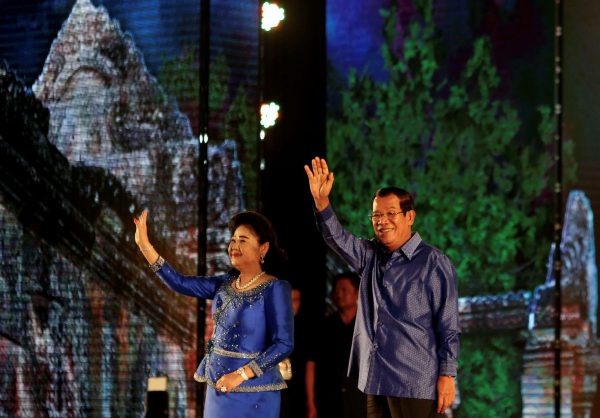The CNRP has called for a voter boycott, which has turned the election into a referendum over its own legitimacy. The CPP has declared illegal the act of publicly calling for a voter boycott (or even proclaiming one’s intention to abstain), creating confusion among citizens whether voting abstention itself could be judged illegal.
A high voter turnout would smooth Cambodian Prime Minister Hun Sen’s path to establishing a new authoritarian order. The government has indicated that it is set on achieving a voter turnout of over 80 per cent, which would be far higher than the record low 68 per cent turnout at the last national election in 2013. A high turnout would make the creation of a new national narrative that relegates the CNRP to history a more feasible project. The election could be cited as proof that the nation has come together to express support for the CPP’s resolute derailing of a ‘colour revolution’ in the making.
Yet a high voter turnout is not strictly necessary for the administration’s stability or even likely to impact on its future policy direction. The government’s efforts to ensure a high turnout are in the first place intended to secure the appearance of legitimacy, rather than to win the people’s hearts and minds.
Once the legitimacy of the new government is publicly unchallengeable, there will likely be efforts to genuinely deepen popular support by tying continued CPP rule and its thwarting of alleged (foreign-backed) revolution to national pride. This would go hand-in-hand with the government’s successful efforts to take politics out of the equation in terms of citizens’ thoughts about their futures: having had their political awakening eclipsed, Cambodia’s urban youth are steering away from politics towards business and entrepreneurship instead.
In the final analysis, it is the act of holding an election rather than the turnout that matters. The election will sanction Hun Sen’s continued hold on power, and the government will construe this victory as a new chapter in the country’s political development after the demise of the political opposition. Though there may be a slight softening of political repression after the election, this will likely not be felt so much by the media and civil society. Since the election will mainly serve to establish a definite ‘before’ and ‘after’, the administration will need to defend the ‘new normal’ that the election ushers in. The fact that former CNRP voters have been bypassed by the election leaves too many issues unresolved for the government to soften its stance substantially.
Meanwhile, a militarisation of the National Assembly prepares for military oversight over policy. The government will continue to court key constituencies previously singled out by the CNRP (such as garment workers, civil servants and the armed forces) with favourable economic policies such as incremental salary raises. As for foreign policy, Cambodia will likely continue its roaring pivot to China and Russia, unperturbed by the election’s lack of recognition by the international community (the European Union and the United States have already proclaimed that, without the CNRP’s participation, the election will not be considered legitimate).
The holding of the election and its outcome may be written in stone, but exactly how it fits into the democratic backsliding of the country is still being sculpted. Multi-party elections will by all appearances remain important in Cambodia beyond 2018, but from now on the fireflies (small, insignificant parties that crop up around election time) may buzz more loudly. The notion of multi-party democracy, embodied by the procedural spectacle of elections, has rooted itself deeply in Cambodia.
At the same time, the government intermittently flirts with the notion of one-party rule, such as when Hun Sen publicly reflected in June that one-party states such as China and Vietnam also let the private sector lead national development. After Cambodia’s government turns the page on 29 July, it may increasingly allude to the merits of de facto one-party rule while continuing to fervently protect the formalities of multi-party democracy.
Astrid Norén-Nilsson is an Associate Senior Lecturer at the Centre for East and South-East Asian Studies, Lund University.

